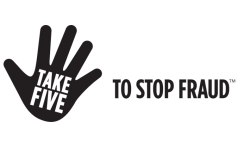

Common Covid-19 financial scams to be aware of
The ten most common scams relating to coronavirus have been revealed by trade body UK Finance, including one scam involving fake 'official looking' emails purporting to offer council tax reductions.
The trade body has published the list of commonly reported scams, to coincide with the launch of a new animation video urging people to follow the advice of the Take Five to Stop Fraud campaign and be vigilant.
Financial scams
According to UK Finance, members of the public should be vigilant for the following four financial scams:
1. Criminals have sent fake government emails designed to look like they are from government departments offering grants of up to £7,500. The emails contain links which steal personal and financial information from victims.
2. Fraudsters have also been sending scam emails which offer access to ‘Covid-19 relief funds’ encouraging victims to fill in a form with their personal information.
3. Criminals have been targeting people with official-looking emails offering a ‘council tax reduction’. These emails, which use government branding, contain links which lead to a fake government website which is used to access personal and financial information.
4. Fraudsters are also preying on benefit recipients, offering to help apply for Universal Credit, while taking some of the payment as an advance for their “services”.
In addition to these financial scams, there are other scams involving TV licensing and fraudsters posing as representatives from the NHS Test and Trace service.
Spotting the signs
Have your suspicions something may be a scam but you can't be sure? Common signs that something may be a scam include:
- The website address is inconsistent with that of the legitimate organisation
- The phone call, text or emails asks for financial information such as PIN, passwords
- You receive a call or email out of the blue with an urgent request for your personal or financial information, or to make an immediate payment
- You’re offered a heavily discounted or considerably cheaper product compared to the original price
- There are spelling and grammar mistakes, or inconsistencies in the story you’re given
Much more advice on spotting and avoiding scams can be read online here.
- If you believe you’ve fallen for a scam, the advice is to contact your business’ bank immediately on a number you know to be correct, such as the one listed on your statement, their website or on the back of your debit or credit card.

